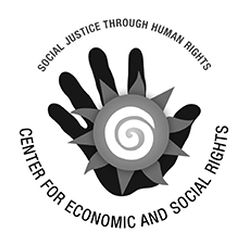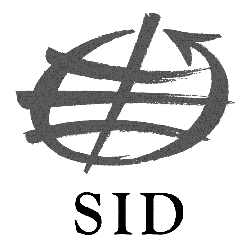By Arthur Muliro Wapakala, Deputy Managing Director, Society for International Development
The past few years have seen the economies of the East African Community (EAC) Member States grow by leaps and bounds, with the region averaging some 6 percent annual GDP growth since 2011. These growth rates have been heralded as the proof that the region has finally made a structural shift in its economies, and this is now held out as a harbinger of greater things to come. Furthermore, the potential emerging from the recent hydrocarbon discoveries and the extractive industries in general as well as the long-awaited renewal of dilapidated rail, road and port infrastructure has also served to boost optimism. Indeed, the ‘mix’ of the region’s economies suggests that there is a deeper and perhaps subtler set of changes taking place.
But this economic expansion has been accompanied by a growth in inequality in virtually all countries of the EAC. Put bluntly, not all citizens of East Africa have seen or felt the benefits of these stellar GDP growth figures. If anything, for a growing number of them, life has become a much harsher and unpleasant enterprise. The economic boom has not generated the jobs it was expected to generate and there is a growing frustration, perhaps a realization that these jobs will never materialize. For all the progress made in recent years, the levels of poverty, hunger and malnutrition in the region are still staggeringly high and serve to underline the adage, ‘You cannot eat GDP’.
If any progress is to be made in closing the inequality gap in East Africa, it cannot be done without addressing the close linkages in the relationship between politics (domestic and regional) and inequality. In this regard, it is time to begin to ask hard questions of the leadership of the region. For instance: To what extent are the region’s political institutions linked to the persistence of poverty? What political factors affect the evolution of inequality and what are the effects of inequality on political choices and outcomes? Is there a relationship between the various ethnic or national identity formations present today and how public goods are provided?
What is clear is that in the absence of committed efforts to dismantle and recreate the institutions that distribute power and the networks that have emerged to extract benefits from them, it is unlikely that the inequalities seen to date will simply vanish. If anything, they will become more glaring and eventually possibly even overwhelm the societies hosting them. Thus, the imperative that the leadership of the region – at all levels – needs to be committed to is one of institutional transformation to ensure that they are less amenable to capture and that their benefits are widely distributed within the population.
The Society for International Development (SID) 2016 State of East Africa Report considered the political economy of inequalities in East Africa and what role the regionalization process could play in helping to narrow the present inequality gaps. [fn]Society for International Development (2016). [/fn] The conclusion of the authors was that everything was dependent on the choices that the leaders are willing to make; whether they are willing to take bold steps to reconfigure the institutional and power architecture to ensure that all citizens of the region benefit from integration as opposed to only a (small) segment.
The report analyses nine sectors divided across three pillars: an economic pillar, a social pillar and a political pillar. In each of these sectors, the report asks questions that straddle an additional three domains:
- The fiscal domain: Where are resources obtained from and how are they spent?
- The normative domain: What policy decisions are made (or not) and who benefits?
- The ethical domain: Whose narrative prevails and what instruments are used to weaken the moral core of society?
This report sets out a number of key messages for its readers to consider. Whilst the emphasis of the messages focuses on changes that need to take place at the national level, it is impossible to divorce the needed changes from the regional integration question as each country comes into the regional space with its individual strengths and weaknesses and this has an impact and influence on the character and pace of regionalization.
As such – and as the report points out – the biggest task facing the state in East Africa today is not so much that of pursuing economic growth at any cost, but that of creating the foundations for lasting human development in the region. For instance, the massive spending on ‘key’ infrastructure projects should factor in the broader public good at the outset and not as an afterthought. By reinforcing the livelihoods of each individual citizen, the potential for national and regional growth will be multiplied several times over.
When considering the levels of inequality present in the region today, it is evident that the implicit social contract that has accompanied East African States since their formation and independence needs to be rethought and renegotiated with a view to ensuring that the majority of the citizens get a fair return out of this bargain. It is highly likely that if inequalities continue to deepen, future generations of East Africans will live worse lives than the current generation of East Africans. In any case, a ‘catastrophic convergence’ of politics, economy and environment does not bode well for the region. Any magnification of systemic challenges could overwhelm its response and resilience mechanisms.
Thus, the challenge for East Africa today remains that of unmasking and tackling the political economies that are drivers of inequalities at the national level. Anything less will not deliver a regional integration process that is truly people centered and sustainable, one that is transformative for the lives and choices of East Africans. Anything less will be simply an effort in consolidating misery.
Arthur Muliro Wapakala is Deputy Managing Director of the Society for International Development (SID), based in Nairobi, Kenya.
Society for International Development (2016): State of East Africa Report. Consolidating Misery? The Political Economy of Inequalities in East Africa. Nairobi: SID.
www.sidint.net/sites/www.sidint.net/files/SoEA-2016.pdf








